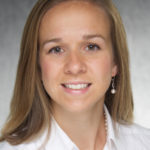When specialists work together, clinicians and patients alike can experience the positive effects. Such has been the case for a pediatric specialty clinic that has incorporated a specialty pharmacy into its practice.
During an ARHP Clinical Practice session on Tuesday, the team behind this strategy will share how they did it and the far-reaching benefits they’ve seen. The Role of Clinical Pharmacy Specialists in a Pediatric Clinic will take place from 4:30 – 6:00 pm in Room 10.

Jessica Lynton, PharmD, BCPS, Pediatric Clinical Pharmacy specialist and Adjunct Professor at the University of Iowa Hospitals & Clinics in Iowa City, will share how she came to join a pediatric rheumatology practice at the university.
Lynton will discuss the benefits of adding a pharmacy specialist to the outpatient medical team, the practical steps involved, and the barriers a clinic might experience during the implementation process.
“Our goal is to show how a pharmacist can improve patient care in a specialty clinic,” she said. “I’ll specifically explore the areas where providers identified needs and pharmacists were able to come in to improve those processes.”
In her role, Lynton has helped with a number of medication-related processes, including medication education, insurance authorization and appeals, compliance, and monitoring for adverse effects.
“I hope to show attendees that pharmacists can not only help patients, but can also help the physician and nurses,” she said. “We’ve improved patient access to medication by improving the turnaround time for insurance approval and medication dispensing. Ensuring the patient receives the medication is no longer an issue for the provider and nurses because I — in conjunction with the specialty pharmacy — follow this process from start to finish. Although insurance may restrict patients to specific pharmacies, when patients are permitted to fill at our on-site pharmacy, the communication between the physician and pharmacy is seamless, as we both use the same electronic medical record system, and I am present in clinic.”
Lynton will also discuss additional benefits to having a pharmacist in the specialty clinic, including a discussion of the clinical metrics being followed and addressed for clinic patients and how the addition of the pharmacist has led to improvements in these measures.

Alex Mersch, PharmD, MBA, an Adjunct Professor and Clinical Pharmacy Specialist at the University of Iowa Hospitals & Clinics, will present a cost-benefit analysis of adding a specialty clinic pharmacist.
“The first step when you’re thinking about integrating a pharmacist into your practice is to gain an understanding of what a pharmacist costs,” Mersch said. “It can vary significantly depending on the level of training, location, and other variables. Then clinics will need to understand the ways they can offset the costs of a pharmacist by using them appropriately.”
He’ll discuss sources of revenue from pharmacy services that do not directly impact the provider. Specialty pharmacy services can generate revenue for the health system while decreasing costs associated with the clinician’s time, he said.
In addition to understanding the financial costs compared to the revenue potential, Mersch said, clinics should also factor patient outcomes into the decision-making process.
He’ll provide additional data on some of the tangible benefits pharmacy services can bring to a specialty clinic. Specifically, he’ll share data that shows the pediatric specialty clinic and greater pharmacist collaboration at the University of Iowa Hospitals & Clinics has improved patient outcomes in areas such as medication adherence and immunization rates.
Polly Ferguson, MD, Associate Professor, University of Iowa Hospitals & Clinics, will talk about using clinic- embedded pharmacists to create a successful healthcare model.
Dr. Ferguson will discuss what she once saw as areas in need of improvement in her clinic, and how adding pharmacy services helped improve those deficiencies. She’ll share the benefits for both patients and clinical staff that she’s seen in her practice since adding a pharmacist.
